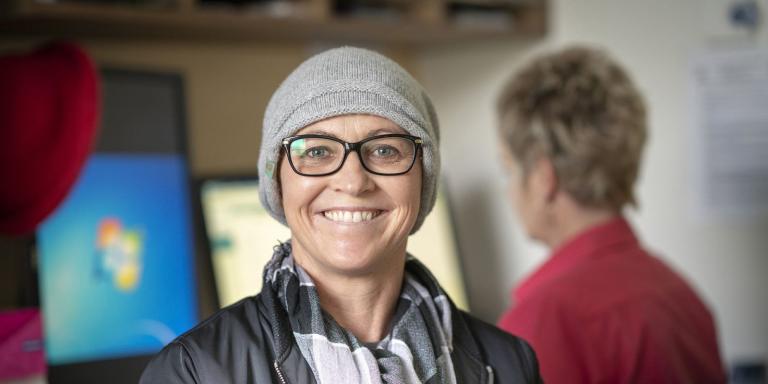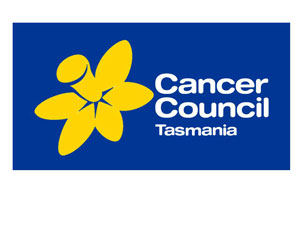
Research and Clinical Trials
Northern Cancer Service

Research#
The Northern Cancer Service has a range of research projects running at any given time. These projects are aimed at improving services and treatment for patients living with cancer at a local, national and internal level.
We offer a range of clinical trials at the Northern Cancer Service. If you are interested in clinical trials talk to your Oncologist at your next appointment. There may be a local clinical trial, or your Oncologist can help you find a clinical trial interstate.
About our clinical trials unit#
The Northern Cancer Service clinical trials team are based at our Launceston and Burnie clinics. Our clinical trials nurses are specialist nurses who have skills and training in both oncology and conducting clinical research. We run a range of phase 2 and phase 3 clinical trials in solid tumours and blood cancers.
Tasmanian Clinical Trial Research Agreements
Treasurer’s Instruction C-1 ‘Contracts – Disclosure and Confidentiality in Government Contracting’ prohibits the inclusion of confidentiality provisions in contracts where the Tasmanian Crown is a party, unless the Accountable Authority approves an inclusion of such as clause or allows a class exemption. This prohibition also applies to the Tasmanian Health Service, the legal entity which most often enters into CTRAs. This prohibition applies only to the terms and conditions of the contract itself. The purpose of this policy is to not unduly fetter public scrutiny of contracts.
Despite standard Medicines Australia CTRA not containing confidential provisions, Tasmanian CTRAs have amendments inserted at Schedule 7 ‘Special Conditions’ to provide clarity and ensure full compliance with C-1.
If you are a clinical trials sponsor interested in working with our site, please contact our clinical trials unit directly via email or phone 6777 6161.
What are clinical trials?#
Clinical trials are an essential part of the journey towards finding better, more effective treatments for cancer.
A clinical trial is an experimental, scientific study where people with specific conditions volunteer to participate to test new possible treatments. Clinical trials are used to gather more information about how effective a treatment is by following a detailed protocol.
A protocol is a very detailed guideline, which includes close monitoring of the trial participant (the cancer patient). Commonly in cancer patients, there is a study arm and a control arm. This means that some people will be randomly selected to go onto the study treatment and others who are in the study will have standard treatment. This creates what is called a control group and is very important in testing the outcomes of the new treatment against what would normally happen.
All clinical trials participants are carefully monitored by their Oncologist and the clinical trials team to measure their progress and outcomes.
Taking part in a clinical trial, time and cost#
Taking part in a clinical trial should not cost you more than regular cancer treatment. Some of the tests and treatments that you receive in the trial are part of usual care. If your trial requires you to have extra tests or non-standard treatment, this is covered by the trial organiser. Where possible, we try to reduce travel and develop a plan that fits with you.
Your rights#
You can take as much time as you need to decide whether to join a clinical trial. Clinical trials are experimental treatment. It is okay to join a clinical trial and later change your mind and not continue with the clinical trial. A person’s care is not affected if they decide that being involved in a clinical trial is not for them, or if they choose to withdraw from the clinical trial for any reason. Your relationship with your oncology team will not be affected by your decisions to participate or not.
Ethical approval#
All clinical trials and research conducted at the Northern Cancer Service have ethical approval and oversight from an accredited, nationally recognised Human Research Ethics Committee. Any clinical trial you are asked to participate in will have contact details for the Ethics Committee if you want to contact them for any reason.
Useful questions to ask#
- What is the aim of the trial (What is the question being addressed?)
- How long has the trial been running?
- How many people are participating in the trial?
- How long will the trial last?
- What is my role in the clinical trial?
- What additional tests are involved?
- How could I benefit from being in the trial?
- Who can I contact if any problems arise?
- What if I change my mind about participating in the trial?
- What happens if I choose not to participate?
- How will my information be shared?
- What are the known side effects?
Print out these useful questions to take along to your appointment
For more information#
Talk to your Oncologist at your next appointment or the clinical trials team.
Clinical Trials Team
Phone: (03) 6777 6161
8:00am to 4.30pm Monday to Friday (closed on public holidays).
More information about clinical trials can be found via these trustworthy web resources:
- Australian New Zealand Clinical Trials Register - Online Registry of Clinical Trials being undertaken in Australia, New Zealand and elsewhere.
- Cancer Council Australia Cancer Council Australia provide a detailed summary of clinical trials.
- Understanding Clinical Trials and Research Cancer Council Australia have developed a brochure called: ‘Understanding clinical trials and research, A guide for people affected by Cancer’, this can be downloaded and printed, or you can pick one up from your local cancer service or Cancer Council Tasmania office.
Supporters#
The Northern Cancer Service Clinical Trials Unit is proudly supported by the Northern W.P. Holman Clinic Trust and the Cancer Council Tasmania.


